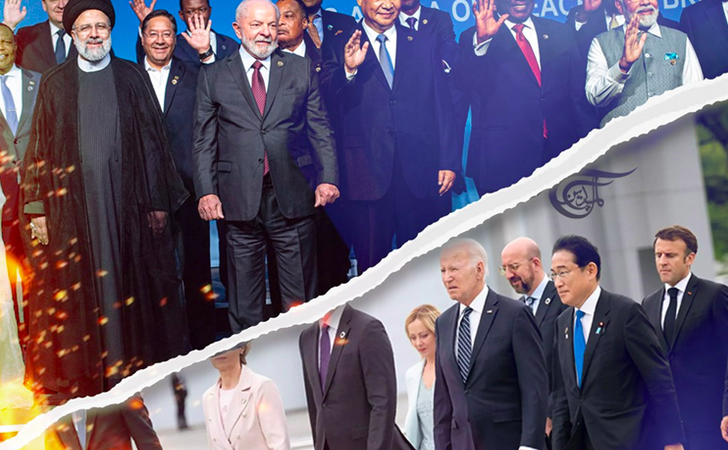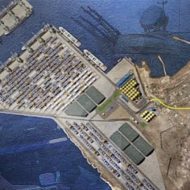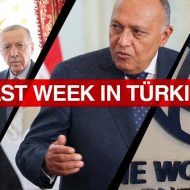The resistance of the Palestinian people against the Israeli occupation, beyond being a national liberation movement, in the current context has evolved into a significant component and forefront of humanity’s defiance against the unipolar, Western-centric world.
In accordance with this reality, Western countries have lined up in support of Israel, their outpost in the East. To avoid any damage on their order, they sent aircraft carriers, military equipment and even troops, as well as political, economic and diplomatic support to bolster their outpost.
The forces asserting that they are fighting at different levels against the Western-centric, unipolar world have, since the outbreak of the war on October 7, performed fragmented, and unorganized. Let us summarize the inconsistencies and disarray in their policies.
Can West Asian countries adopt a common position?
Türkiye, Egypt and Iran, countries with state tradition which have varying degrees of disagreement with the West, continue to differ and disconnect in their approaches to the issue.
Türkiye initially attempted to play the role of a mediator at the beginning of the conflict, but as Israel escalated its violence, Türkiye moved forward to take a side more openly. Türkiye made moves like President Erdoğan’s statement “Hamas is not a terrorist organization, but a group of freedom and mujahideen who are striving to protect their lands and their citizens”, suspending energy-related talks with Israel and recalling the ambassador. However, everyone knows that these actions are limited and symbolic. Türkiye still connives the activities of İncirlik and Kürecik NATO bases, which provide logistical and intelligence support to Israel, and maintains political, diplomatic and economic relations with Israel.
Egypt, like Türkiye, has taken cautious and limited steps, avoiding from directly opposing the US/Israel. Cairo’s insistence on keeping the Rafah Border Crossing open was primarily directed at domestic politics and Arab public opinion. The Sisi government opposed Israel’s project of relocating Gazans to Egyptian territory for safeguarding Egypt’s territorial integrity. Jordan also fully supported Egypt in this matter, knowing that if this project is implemented, Jordan might be next.
And Iran. Tehran has supported Palestine, particularly Hamas, politically, militarily and economically from the beginning. Iran’s attitude remained unchanged after the war broke out. Iran-backed Hezbollah, resistance groups in Iraq and Syria and the Houthi in Yemen began to act against the US and Israel. Meanwhile, Iran used actively diplomatic channels with Türkiye and Egypt.
However, up to this point, there hasn’t been occurred a tangible project where Türkiye, Egypt, and Iran could come together to go beyond just opposing the displacement of Palestinians and calling for a ceasefire. The joint proposal for peace and a future plan by these prominent countries in West Asia could potentially alter the region’s course.
Will Russia and China take initiative?
Outside of West Asia, we should also discuss the attitudes of Russia and China, which are engaged in confrontation with the US on various fronts.
Russia stated its support for the 1967 borders and a two-state solution at the beginning. As Israel became more aggressive, Russia hosted Hamas leaders in Moscow and released stronger diplomatic statements. Yet, it refrained from taking action in various areas where Israel could be constrained, especially in Syria.
China reiterated its support for the 1967 borders and held the US responsible for what happened. There seems to be no deterioration in relations between Beijing and Tel Aviv.
In summary, Russia and China have, as of now, refrained from taking a joint initiative against Israel and presenting a concrete plan for the future of the region.
In light of all these, the call by the Iranian Ministry of Foreign Affairs to BRICS countries for imposing sanctions on Israel is valuable and should be attentively considered.
Insistence on the multipolar world
If forces claiming to oppose the Western-centric world, especially China and Russia, are persistent in their claims, the war in Palestine is an important opportunity to assert the rules of the new world on the opposing side.
Türkiye, Russia and Iran have partially succeeded in formulating a solution in Syria through the Astana model, seizing the initiative from the hand of West.
A similar solution model could be applied to Palestine. Such a model, led by Türkiye, Egypt and Iran in the first place could receive support from Russia and China.
Following four points and the likes can be addressed in a common peace negotiation:
1. Ceasefire,
2. Mutual prisoner exchange,
3. Establishment of an independent Palestinian State within the 1967 borders,
4. Protection of the rights of this Palestinian State on its exclusive economic zone in the Eastern Mediterranean.
And BRICS can play a pivotal role throughout such a process.
How to force Israel to negotiation?
Certainly, the question of which force will compel Israel to come to the negotiating table remains unanswered before all humanity.
Firm economic, political, and diplomatic sanctions with inclusion of Russia and China, along with regional countries might break the resolve of the Tel Aviv government and force them to accept a reasonable solution, despite US support.
The US is aware that Israel’s ground operation in Gaza amounts to a suicidal move, and for this reason, urgently pushing for a diplomatic solution.
If states advocating a multipolar world impose their own solution, it will render the US helpless, and similar to that in Syria, the initiative will shift from the West to the East.
The events in Palestine underscore the fact that the world is in the midst of a grand transformation. The rulers of yesterday are fighting with all their might to hold onto their thrones.
It is the time, and the time is running out, for those who aspire to free humanity from the chains of a unipolar world to provide a unified response to all these attacks.
A joint and robust response to the West and its outpost in the region, Israel, will deal a decisive blow to unipolarity.
Cover graphic by al Mayadeen.









Leave a Reply